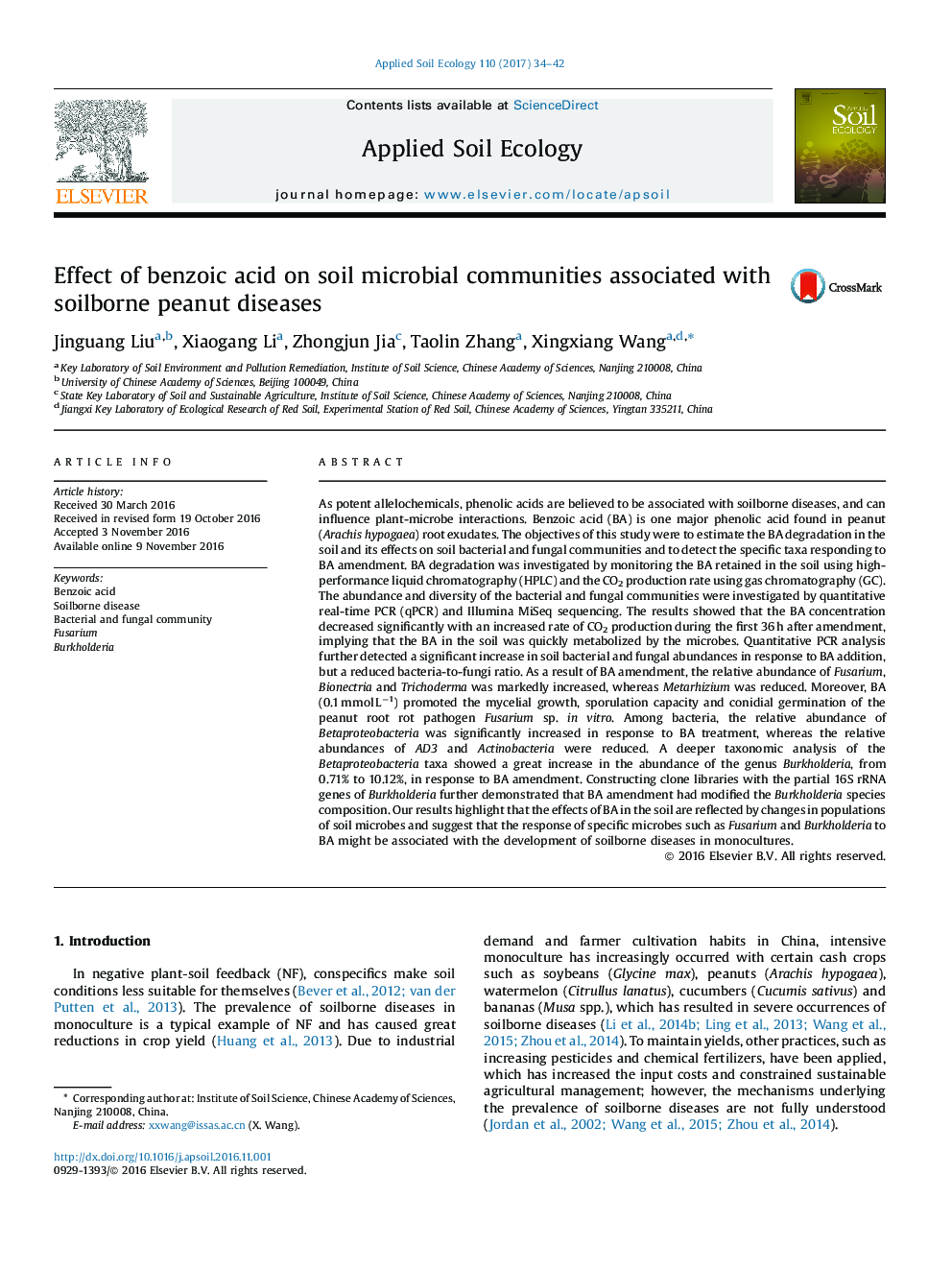| کد مقاله | کد نشریه | سال انتشار | مقاله انگلیسی | نسخه تمام متن |
|---|---|---|---|---|
| 5742770 | 1617773 | 2017 | 9 صفحه PDF | دانلود رایگان |
- Benzoic acid (BA) reduced the ratio of bacteria to fungi in the soil.
- BA changed the abundance of Fusarium, Trichoderma, Metarhizium and Burkholderia.
- BA promoted the growth of the peanut root rot pathogen Fusarium sp. in vitro.
- BA supplementation altered the Burkholderia species composition.
- Effects of BA in the soil were reflected by soil microbial populations.
As potent allelochemicals, phenolic acids are believed to be associated with soilborne diseases, and can influence plant-microbe interactions. Benzoic acid (BA) is one major phenolic acid found in peanut (Arachis hypogaea) root exudates. The objectives of this study were to estimate the BA degradation in the soil and its effects on soil bacterial and fungal communities and to detect the specific taxa responding to BA amendment. BA degradation was investigated by monitoring the BA retained in the soil using high-performance liquid chromatography (HPLC) and the CO2 production rate using gas chromatography (GC). The abundance and diversity of the bacterial and fungal communities were investigated by quantitative real-time PCR (qPCR) and Illumina MiSeq sequencing. The results showed that the BA concentration decreased significantly with an increased rate of CO2 production during the first 36 h after amendment, implying that the BA in the soil was quickly metabolized by the microbes. Quantitative PCR analysis further detected a significant increase in soil bacterial and fungal abundances in response to BA addition, but a reduced bacteria-to-fungi ratio. As a result of BA amendment, the relative abundance of Fusarium, Bionectria and Trichoderma was markedly increased, whereas Metarhizium was reduced. Moreover, BA (0.1 mmol Lâ1) promoted the mycelial growth, sporulation capacity and conidial germination of the peanut root rot pathogen Fusarium sp. in vitro. Among bacteria, the relative abundance of Betaproteobacteria was significantly increased in response to BA treatment, whereas the relative abundances of AD3 and Actinobacteria were reduced. A deeper taxonomic analysis of the Betaproteobacteria taxa showed a great increase in the abundance of the genus Burkholderia, from 0.71% to 10.12%, in response to BA amendment. Constructing clone libraries with the partial 16S rRNA genes of Burkholderia further demonstrated that BA amendment had modified the Burkholderia species composition. Our results highlight that the effects of BA in the soil are reflected by changes in populations of soil microbes and suggest that the response of specific microbes such as Fusarium and Burkholderia to BA might be associated with the development of soilborne diseases in monocultures.
Journal: Applied Soil Ecology - Volume 110, February 2017, Pages 34-42
